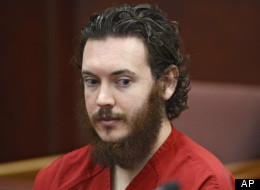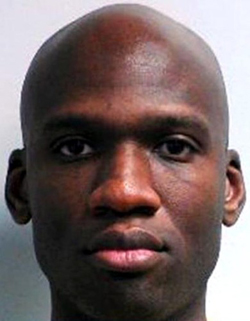By Kelly Patricia O’Meara
July 24, 2015
John Russell Houser killed two and injured nine others yesterday when he opened fire in a Lafayette, LA, movie theater, before killing himself. Like too many other horrific shooting incidents, Houser has a history of mental health “treatment,” and according to documents from 2008 filed in court by his estranged wife, Kellie Maddox Houser, he “has a history of mental problems (manic depressant and bipolar)” and was being “prescribed medication to take daily.”
These statements by his estranged wife were part of a request for a temporary restraining order because Houser “exhibited extreme erratic behavior and has made ominous as well as disturbing statements.”
Given the ever-increasing number of shooters having been “treated” with psychiatric mind-altering drugs for alleged mental health illnesses, it should come as no surprise to anyone that psychiatric drug “treatments” once again should be implicated in yet another act of senseless violence.
At least 35 school shootings and/or school-related acts of violence have been committed by those taking or withdrawing from psychiatric drugs, resulting in 169 wounded and 79 killed. And, in fact, the Food and Drug Administration’s (FDA) MedWatch system on psychiatric drugs reveals that there have been nearly 15,000 reports to the system on psychiatric drugs causing violent side effects including 1,531 cases of homicidal ideation/homicide, 3,287 cases of mania and 8,219 cases of aggression.
Additionally, it is no secret that violence associated with psychiatric drugs is far from known only to the United States. For example, there are 22 international drug regulatory warnings on psychiatric drugs, issued by the United States, European Union, Japan, United Kingdom, Australia and Canada, citing effects of mania, hostility, violence and even homicidal ideation.

Aurora, CO shooter James Holmes was prescribed the anti-anxiety drug clonazepam and the antidepressant, sertraline, the generic version of the Zoloft.
Houser’s attack yesterday in Louisiana is eerily similar to that of the 2012 mass shooting in Aurora, Co., killing twelve and wounding 70. While Houser’s mental health issues have been made public, the specific data regarding his psychiatric drug “treatment” still remain a mystery.
Recall that the Aurora, Co., shooter, James Holmes, who awaits sentencing, had been prescribed the anti-anxiety drug clonazepam and the antidepressant, sertraline, the generic version of the antidepressant, Zoloft. Holmes’s specific drug “treatment” was not known to the public for months.
Other recent examples include Washington Navy Yard shooter, Aaron Alexis, who had been prescribed the antidepressant, Trazodone, and Fort Hood shooter, Ivan Lopez, prescribed Ambien, antidepressants and other medications to treat anxiety and depression.
Too often the specific data regarding the perpetrator’s psychiatric drug history is withheld from the public and, ultimately, an opportunity to thoughtfully consider and openly discuss the very real possibility that psychiatric drugs are becoming the common denominator among shooters is blatantly ignored.
In order to understand the motives and reasons behind such senseless violence, it is imperative that investigators and media ask pertinent questions, including addressing whether the perpetrator was on psychiatric drugs, had a history of psychiatric drug use, or had withdrawn from psychiatric drugs prior to the incident.
With nearly 80 million Americans currently taking at least one psychiatric drug and the known adverse effects associated with psychiatric drugs, including violence, mania, hostility, aggression and psychosis, these questions no longer can be ignored.
—
Kelly Patricia O’Meara is an award-winning former investigative reporter for the Washington Times’ Insight Magazine, penning dozens of articles exposing the fraud of psychiatric diagnosis and the dangers of the psychiatric drugs—including her ground-breaking 1999 cover story, “Guns & Doses,” exposing the link between psychiatric drugs and acts of senseless violence. She is also the author of the highly acclaimed book, Psyched Out: How Psychiatry Sells Mental Illness and Pushes Pills that Kill. Prior to working as an investigative journalist, O’Meara spent sixteen years on Capitol Hill as a congressional staffer to four Members of Congress. She holds a B.S. in Political Science from the University of Maryland.



